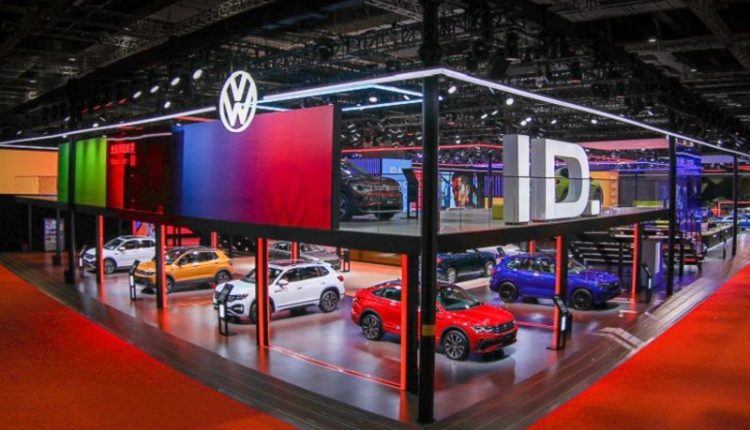BEIJING — Volkswagen Group said it would likely double sales of its ID battery-electric vehicles in China this year and aims to do even better but the automaker could be hamstrung by a shortage of semiconductors.
The ID series, which VW builds at its Chinese joint ventures with SAIC Motor and FAW Group, is the backbone of its EV ambitions in China, the world’s largest auto market.
VW sold 70,625 of its ID full-electric vehicles in China last year, missing its goal of selling 80,000 to 100,000 cars, with production also affected by COVID-19 disruption in addition to chip-related issues.
Recent COVID-19 outbreaks in the cities of Ningbo and Tianjin have caused shutdowns at a VW joint-venture plant and key suppliers, which affected production of ID cars.
VW’s China chief, Stephan Wollenstein, told a briefing in Beijing that the automaker would like to double sales of the ID series to about 140,000 this year but that goal “is not currently secured by the semiconductor supplies that we currently see.”
In comparison, local EV makers Nio, Xpeng and Li Auto delivered between 90,000 to 100,000 vehicles last year.
VW Group, which alongside its own brand owns other marques such as Audi, Lamborghini and Porsche, sold 3.3 million cars in China last year, down 14 percent, Wollenstein said. That missed the group’s internal target, he said.
The VW brand accounted for about 2.26 million deliveries, or around 11 percent of the national auto market. That compares to a previous share of 14 percent to 15 percent, which Wollenstein described as a “”substantial loss.”
VW Group aims to boost sales by around 15 percent or roughly 500,000 units this year, though Wollenstein said this also depended on the chip supply situation.
The shortage of chips, used in everything from brake sensors to power steering to entertainment systems, has led automakers around the world to cut or suspend production, pushing up both new and used vehicle prices amid robust demand from consumers.
While China’s EV market is seeing very strong growth, most foreign automakers have lagged their Chinese counterparts in designing smart cars that appeal to local buyers.
The market is now dominated by Chinese brands, led by BYD and Wuling — part of General Motors but a local marque. While Tesla ranks as No.3, it is the only foreign brand among the top 10.
“You don’t see Volkswagen. Players like Volkswagen, GM and Toyota have fallen far behind in China’s smart EV race,” said Bill Russo, head of consultancy Automobility in Shanghai.
Some 15 percent of all passenger cars purchased in China last year through November were either battery electric cars or plug-in electric hybrids, according to Russo.
In November alone, electric car sales accounted for 21 percent of China’s overall passenger car sales.
Wollenstein will step down as VW’s head of China by the end of August after serving more than 10 years in China. He will be replaced by VW brand CEO Ralf Brandstaetter, the company said last month.
Bloomberg contributed to this report


